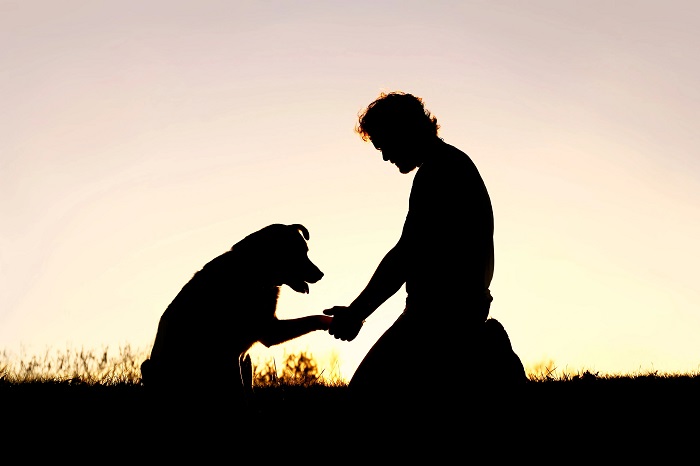
Anyone who considers a pet a beloved friend, companion, or family member knows the pain that accompanies the loss of that friend. Grief over the loss of a pet is normal and natural. During the time you spent with your pet, they became a significant and constant part of your life. It was a source of comfort and companionship, of unconditional love and acceptance, of fun and joy. So don’t be surprised if you feel devastated by the loss of such a relationship. People who don’t understand the pet/owner bond may not understand your pain. All that matters, however, is how you feel. Don’t let others dictate your feelings: They are valid and may be extremely painful.
But remember, you are not alone, thousands of pet owners have gone through the same feelings. Different people experience grief in different ways. Besides your sorrow and loss, you may also experience the following emotions:
Guilt may occur if you feel responsible for your pet’s death-the “if only I had been more careful” syndrome. It is pointless and often erroneous to burden yourself with guilt for the accident or illness that claimed your pet’s life, and only makes it more difficult to resolve your grief.
Denial makes it difficult to accept that your pet is really gone. It’s hard to imagine that your pet won’t greet you when you come home, or that it doesn’t need its evening meal. Some pet owners carry this to extremes, and fear their pet is still alive and suffering somewhere. Others find it hard to get a new pet for fear of being “disloyal” to the old.
Anger may be directed at the illness that killed your pet, the driver of the speeding car, the veterinarian who “failed” to save its life. Sometimes it is justified, but when carried to extremes, it distracts you from the important task of resolving your grief.
Depression is a natural consequence of grief but can leave you powerless to cope with your feelings. Extreme depression robs you of motivation and energy, causing you to dwell upon your sorrow. The most important step you can take is to be honest about your feelings. Don’t deny your pain, or your feelings of anger and guilt. Only by examining and coming to terms with your feelings can you begin to work through them. You have a right to feel pain and grief. A friend that you loved has died, and you feel alone and bereaved. You have a right to feel anger and guilt, as well. Locking away grief doesn’t make it go away. Express it. Cry, scream, pound the floor, talk it out. Do what helps you the most.
Don’t try to avoid grief by not thinking about your pet; instead, reminisce about the good times. This will help you understand what your pet’s loss means to you. Some find it helpful to express their feelings and memories in poems, stories, or letters to the pet. Other strategies include rearranging your schedule to fill in the times you would have spent with your pet; preparing a memorial such as a photo collage; and talking to others about your loss. If your family or friends love pets, they’ll understand what you’re going through. Don’t hide your feelings in a misguided effort to appear strong and calm. Working through your feelings with another person is one of the best ways to put them in perspective and find ways to handle them. Find someone you can talk to about how much the pet meant to you and how much you miss it. If you don’t have family or friends who understand, seek loss counselor or support group.
Provided by Creatures Corner reader Moira Allen, M.Ed.
Related Articles & Free Email Newsletter Sign Up
Bizarre and Humorous Animal Laws
How to Stop Your Horse From Rearing and What to Do if He Does
The Sounds Birds Make and Why They Do It




Comment here